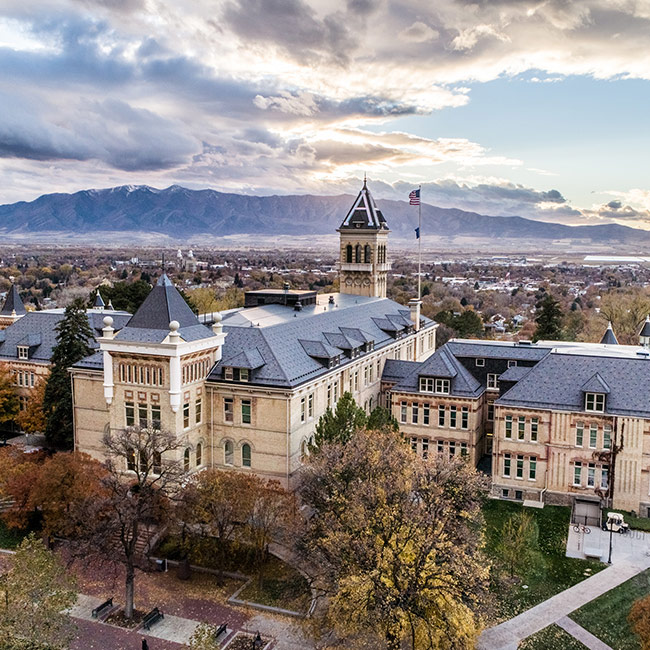About This Degree
The graduate program in sociology provides a unique combination of demographic, organizational, political-economic, and social-psychological aspects to the study of major domestic and global issues.
What You Will Learn
Graduate students have the opportunity to merge basic foundation coursework in social theory and research methods with more specialized training in selected specialty areas, which are environment and community, demography, and states and markets. The sociology program has a particular strength in environmental and natural resource sociology and is one of the top programs for these areas in the United States. In this area, the department collaborates with faculty in natural resources, water engineering, and other physical and social sciences.
There is also a strong emphasis on teacher development, with a required teaching seminar for doctoral students, opportunities for students to teach their own courses, and strong teaching mentoring from faculty.
Specialization:
Demography (PhD):
This specialization explores issues of population change, migration, and health outcomes. Graduate coursework covers areas including social demography, population theories and policies, demographic research methods, and various special topic seminars.
Environment and Community (PhD):
This specialization focuses on the sociology of natural resources, environmental sociology, community theory, and applied community development. Students and faculty conduct research in areas such as natural resource development and social change, resource dependency patterns, land use planning, and more.
Social Inequality:
This specialization focuses on new developments in economic sociology that center on the social and political bases of market processes. Students also research in political sociology on the impact of state-level institutions and political processes on social and economic outcomes.
Climate Adaptation Science (Sociology MS & PhD):
The Climate Adaptation Science specialization provides students with experiences in actionable science through internship and research experiences. Program includes interdisciplinary research to identify adaptive responses to changing climate extremes and two-part internships with agency, NGO, and industry partners. In a first internship, students contribute to projects and learn the workplace cultures and science needs of the host. The internship experiences inform interdisciplinary climate adaptation research by student teams. In a second internship, students share science results and tools with the host organization and help put that science into action.
ADVISING
At a Glance
College: College of Humanities and Social Sciences
Department: Sociology and Anthropology Department
USU Locations:
- Logan campus
Learn More: Program website
Program Requirements
Career And Outcomes
Career Opportunities
Most PhD graduates in sociology obtain careers in academia and research. They are employed at universities or with government agencies. Most students who graduate with the MS continue on to complete a PhD, either at USU or at other universities. Other students interested in working in sociological methods, statistics, and demography can find employment with local, state, and federal agencies and also with nonprofit organizations.
Job Outlook
USU Locations

LOGAN CAMPUS
Admission
Admission Requirements
Applicants for the MS program preferably have a bachelor’s degree in sociology or an equivalent social science. If students have a different major, but have taken core sociology classes in methods, theory, and statistics, and have adequate exposure to the discipline, they may still be considered.
Applicants for the PhD must have completed an MS in sociology or related discipline, with master’s-level sociology core courses and a research-based master’s thesis.
Application Requirements:
- Complete the online application
- Pay the $55 application fee
- Score at or above the 40th percentile on in the GRE
- Have a 3.0 or higher GPA on your last 60 semester or 90 quarter credits
- Provide transcripts of all college/university credits
- Provide three contacts for letters of recommendation
- Provide a letter of intent
International students have additional admissions requirements.
Deadlines
The department has the following deadline:
- Fall semester – December 20
- Applications are accepted after this deadline, but students are less likely to be considered for financial assistance.
Program Requirements
PhD Qualifying Exams:
Students must pass a written comprehensive exam in their third year in the program. The exam will be based on their particular specialization.
Plan Options
For the MS, students must pursue the following option:
- In the Plan A option, students complete graduate-level coursework and must write a thesis.
Financial Aid
The department provides financial assistance to almost all of its graduate students, typically through research and teaching assistantships. These funds are distributed based on student qualifications, performance, and interests.
A variety of funding opportunities are available on the graduate school website.
Take The Next Step
How to Apply
View our step-by-step guide on how to become an Aggie.
Request Information
Contact the School of Graduate Studies to ask questions or receive more information.
Cost and Funding
Calculate the cost of graduate school and learn about funding opportunities.
You May Also Be Interested In

Anthropology
Receive hands-on training with cultural artifacts in a program designed to prepare graduates for careers in archaeology and cultural resource management.

Psychology
Collaborate with faculty on a wide variety of research projects in psychology in one of the nation’s highest ranked graduate colleges.

Rehabilitation Counseling
Graduate from the highest-ranked program at USU with job possibilities in mental health, addiction, and disability care facilities. Students with any undergraduate major can apply.

Social Work
Delve deeper into social work to prepare to become a professional in a wide variety of social service areas. Become a leader in the social work profession.

